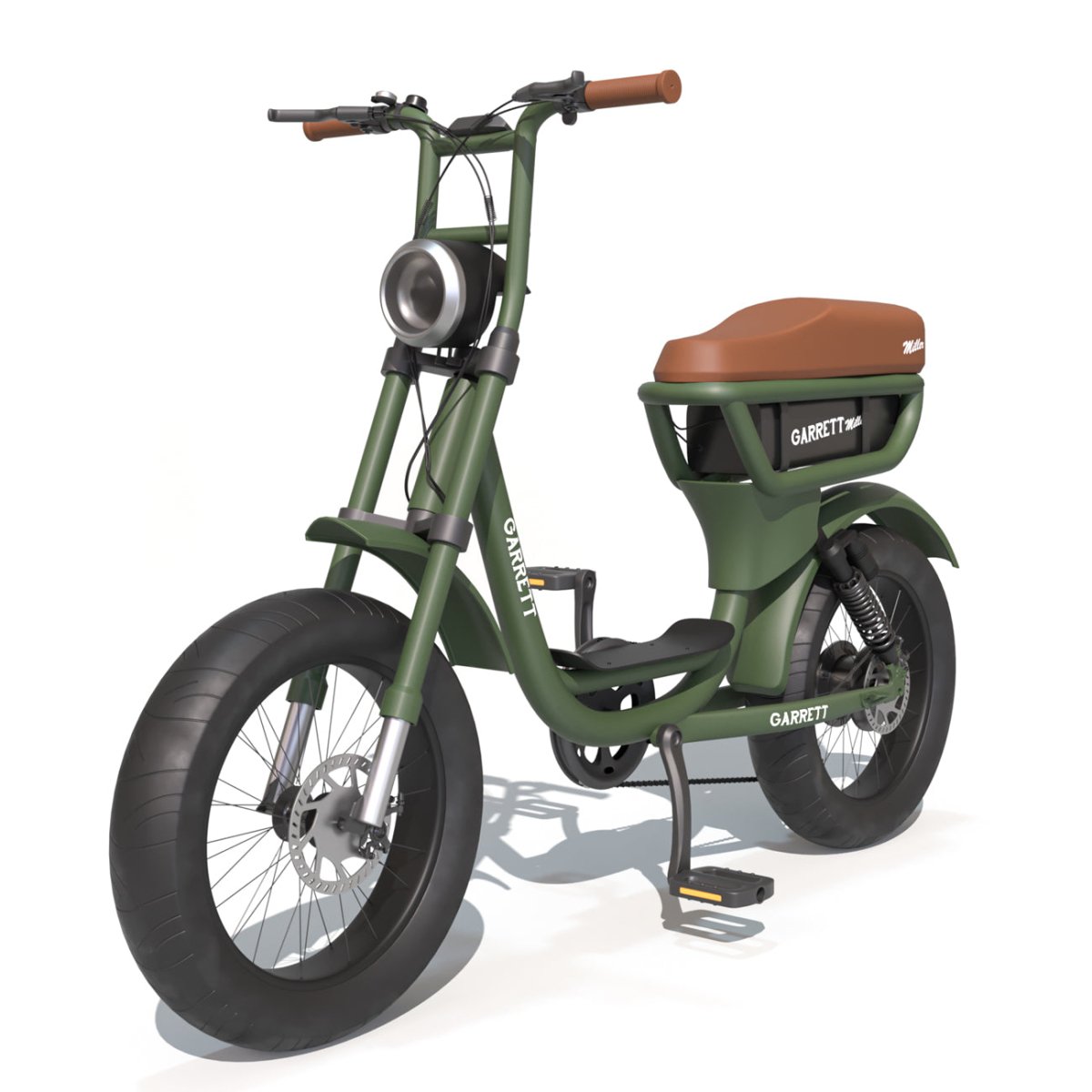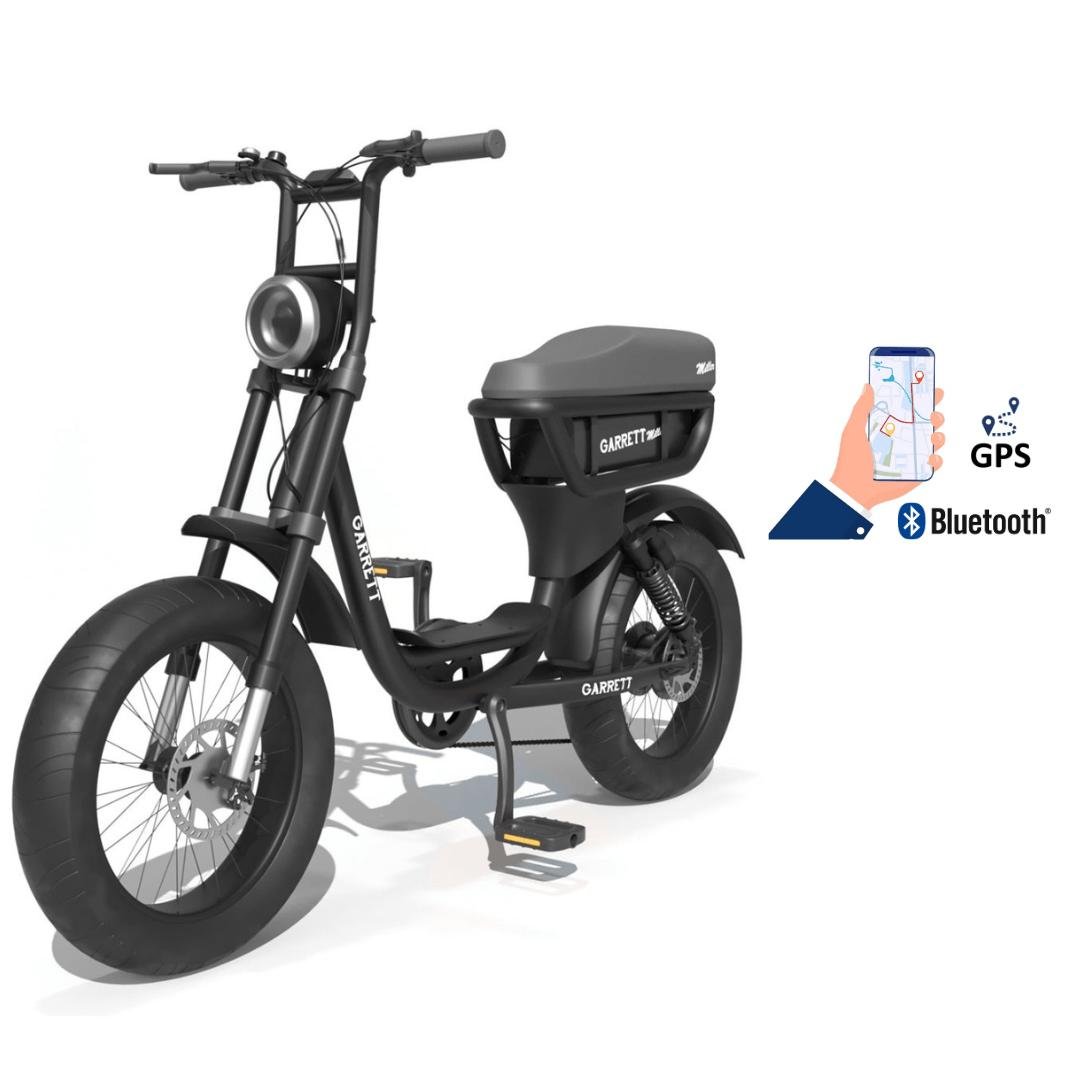Are you having trouble knowing when to shift your gears on your electric bike? Rest assured, you are not alone… and it’s a skill you need to master! Because improper use of gears can unnecessarily wear out the transmission and eat into your battery’s range. In these sections, we explain how to shift gears on an electric bike, the good habits to adopt, and the mistakes to avoid for trouble-free riding.
Should you shift gears on an electric bike?
Contrary to what one might think, an electric-assist bike is not an automatic bike: it’s up to you to manage the gears according to the effort needed. Whether you ride an electric bike Granville urban or an electric bike Superior sporty, good use of gears optimizes assistance, improves pedaling comfort, and extends the lifespan of your transmission.

Why change gears on an electric bike?
Changing gears on an electric bike allows you to adjust your cadence and effort according to the terrain and your pace. Uphill, an easy gear will prevent you from overexerting and prematurely wearing out your transmission. Downhill or on flat terrain, a harder gear helps maintain an efficient rhythm without spinning out. The goal? Find the right balance between assistance and natural pedaling.
The impact of gears on range and wear
Managing your gears well also means protecting your electric bike. If you stay too long on the wrong gear, you unnecessarily strain the motor and transmission, which can accelerate their wear. Moreover, this directly impacts your battery's range.
Smooth and adapted pedaling allows you to ride longer without recharging and extends the lifespan of your components.
How do gears work on an electric bike?
Before knowing when to shift your gears, you first need to understand how they work! On an electric bike, there are several systems that can adapt to your use and riding habits. Let's look at all of this together.

Classic derailleurs
This is the most common system. The derailleur moves the chain on a cassette of sprockets at the rear to adjust the gear ratio. Simple and effective, it equips the majority of sporty and versatile electric bikes. Gear shifting is always done while pedaling.
Internal gear hubs
Less known, this system encloses the gears inside the rear wheel hub. Big advantage: you can shift gears while stopped. Ideal in the city when stops are frequent! It requires little maintenance but remains more expensive and a bit heavier than a classic derailleur.
Automatic transmissions: how do they work?
The latest in the electric bike world, the automatic system adjusts the gear without your intervention. Sensors detect your cadence and the terrain to automatically adapt the gear ratio. Maximum comfort, especially for urban or leisure use, but the budget is often higher.


How to shift gears properly on an electric bike?
Shifting your bike’s gears at the right time and in the right way is the secret to smooth pedaling, preserving your mechanics, and avoiding troubles on the road. On an electric bike, a few reflexes are enough to make every ride more pleasant and efficient.

Do you need to pedal to shift gears?
Yes, absolutely! On an electric bike as on a classic model, you need to pedal for the chain to move properly from one sprocket to another. However, remember to slightly release pressure on the pedals at the moment of shifting to avoid any strain.
The right timing to shift gears
Ideally, anticipate. Don’t change gears in the middle of a climb or while straining. Plan your gear change a few meters before the obstacle or slope. You’ll gain fluidity and comfort!
Tips for tackling a climb or a stop
Before a climb, shift to a larger sprocket to limit effort and let the motor work under good conditions. If you have to stop, remember to shift down before stopping so you can restart without straining.
Cutting or reducing assistance during shifting: useful or not?
It's a good reflex, especially when shifting gears uphill or under load. Reducing the assistance by one notch limits tension on the chain and allows for a smoother shift. Not mandatory, but very useful to protect your transmission in the long run.
Common mistakes to avoid when shifting gears
To keep your electric bike in shape and ride with peace of mind, some bad habits must be avoided. Some mistakes can quickly damage your transmission and eat away at your battery's range without you realizing it.

Starting in too high a gear
This is one of the most common mistakes. Starting on a small sprocket, you unnecessarily strain the chain and the motor. Shift down before restarting to make the restart easier and avoid premature wear.
Shifting multiple gears at once
Trying to save time, some shift 3 or 4 gears at once. Bad idea! The chain may derail or shift poorly, and the motor may be under excessive strain. Prefer gradual shifting.
Neglecting transmission maintenance
A dirty derailleur, a dry chain, or dirty sprockets hinder gear shifting and wear out the equipment. Clean and lubricate regularly for smooth changes and extended lifespan.
What are the types of transmission systems on electric bikes?
Not all electric bikes operate with the same type of transmission. Depending on the model you choose and how you use it, the gear system can be very different, with advantages and constraints to know before buying.

External derailleurs: advantages and disadvantages
The classic derailleur remains the most common on sporty and versatile electric bikes. Lightweight and affordable, it offers a wide range of gears. However, it requires a bit more maintenance and gears can only be changed while pedaling.
Internal gear hub: for whom, and why?
Perfect for urban or leisure use, this system is protected inside the rear wheel hub. It allows shifting gears while stopped and requires very little maintenance. More expensive and a bit heavier than a derailleur, it adapts well to urban routes with frequent stops.
Automatic transmission: at what price and for what use?
Top comfort! This system automatically adjusts the gear to your cadence and the terrain. Ideal for those who want to forget about shifting gears and focus on the joy of riding. However, it requires a higher budget and the offer remains limited to certain high-end models.
Choosing the right electric bike to fully enjoy its transmission
The comfort of gear shifting largely depends on the type of transmission, but also on the electric bike itself. Choosing a model well suited to your daily or sporty use allows you to make the most of your electric assistance.

At Weebot, we offer a selection of electric bikes with efficient and reliable transmission systems, suitable for all types of cyclists.
Granville & Garrett Miller: smoothness and elegance in urban environments
For your city trips, rely on comfortable and efficient bikes. The range of electric bike Garrett Miller and Granville are designed to combine style and practicality, with smooth transmissions, ideal for frequent stops and effortless restarts. They offer excellent ergonomics for a calm daily use.
Onemile & Urban Jungle: agility and compactness
If you’re looking for a maneuverable, easy-to-store, and quick-to-handle electric bike, the Onemile electric bikes and Urban Jungle models are made for you. Perfect for modern urban mobility, these bikes feature easy-to-use gear systems, sometimes even automatic variation, for hassle-free riding in dynamic urban environments.
Superior: performance and control on all terrains
Looking for a high-performance electric bike for sportier rides or hilly routes? The Superior range offers models with precise and responsive external derailleurs, perfect for demanding cyclists. They provide a wide range of gears to adapt to all terrain profiles and maximize motor assistance efficiency.
FAQ
Can I change the number of gears on my electric bike after purchase?
It depends on the type of transmission. On a classic derailleur, it is possible (but costly) to change the cassette or derailleur. For an internal hub or automatic transmission, it is generally not modifiable. It’s better to choose a bike suited to your use from the start.
Does the electric bike motor influence the choice of gears?
Yes. A mid-drive motor (like on Superior electric bikes) acts directly on the transmission, so a good gear choice is essential to preserve the mechanics. A rear hub motor is more forgiving but offers a different behavior when shifting gears.
Do gears affect the maximum speed of the electric bike?
No, the maximum speed of an electric bike is limited by law to 25 km/h with assistance. Gears are used to manage your effort, not to go faster. That said, a good gear choice helps you maintain a steady pace without straining.
How do I know if my gears are properly adjusted?
If the chain slips, makes noise, or resists shifting, an adjustment is necessary. A well-adjusted transmission shifts gears smoothly and without unwanted noise. Regular maintenance (lubrication, cable checks) is also crucial.
Conclusion
Changing gears on an electric bike is not complicated, you just need to get the hang of it. By knowing the right moves and anticipating your gear changes, you will gain comfort and avoid unpleasant surprises. As a bonus, your transmission and battery will thank you by staying in good shape longer. For even more practical advice and maintenance guides, visit Weebot and discover everything you need to know to properly maintain and use your electric bike daily.

